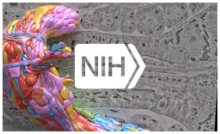
A virtual National Academies of Sciences, Engineering, and Medicine (NASEM) workshop on September 22 and September 23, 2022 brings together experts to discuss scientific, technical, ethical, and regulatory issues around brain-machine interfaces.
Brain-machine technologies, also known as brain-machine interfaces (BMI) and associated technologies, have captured the public and scientific imagination by directly facilitating communication between electrical activity in the brain and a computer or a robotic prosthetic. These powerful technologies can dramatically improve the lives of people with neurological diseases and disorders.
Using technology to enable volitional control over devices and prosthetics provides greater independence and agency to people who need to bypass neural or mechanical impairments. For example, advances in technologies have already significantly improved the lives of people with conditions that impair movement or that result in paralysis, speech loss and/or limb loss. However, with sophisticated tools to read and decode brain activity come important scientific, technical, ethical, and regulatory responsibilities.
The National Academies of Sciences, Engineering, and Medicine (NASEM) are organizing a virtual public workshop on September 22 and and 23, 2022 to talk about scientific and technological advances in BMIs as well as the ethical and regulatory challenges that accompany this cutting-edge research.
The workshop features the following sessions:
-
State and Limitations of the Technology
-
Reading and Writing the Brain for Movement
-
Reading and Writing the Brain for Mood and Affect
-
Reading and Writing the Brain for Thought, Communication and Memory
Each session will be followed by a discussion with the committee, and then a Q&A with the audience. Registration for the event is free, and more details about the workshop including a draft agenda and speaker biographies can be found here.
